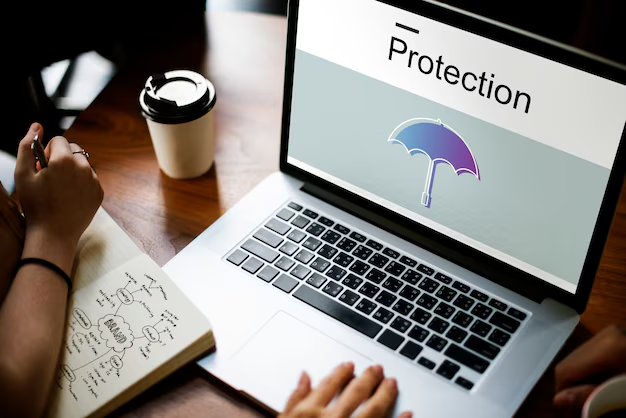
Small businesses are the backbone of the economy, contributing significantly to employment, innovation, and local growth. However, as with any business, small companies face a variety of risks that can threaten their financial stability and long-term viability. From natural disasters to employee injuries, the unexpected can strike at any moment. That’s where small business insurance comes into play. It acts as a safety net, helping entrepreneurs safeguard their assets, employees, and the overall future of their business.
In this article, we will explore how small business insurance protects your company in various scenarios. We will discuss the different types of insurance policies available to small businesses, how these policies provide coverage, and the importance of customizing your insurance package to fit the unique needs of your business. Additionally, we will answer some frequently asked questions about small business insurance, conclude with the key benefits of securing the right insurance, and offer key takeaways for small business owners.
Key Takeaways:
- Financial Protection: Insurance helps protect your business from costly damages, lawsuits, and losses.
- Risk Management: It allows you to manage and share the risks associated with running a business.
- Employee Security: Workers’ compensation and other policies provide protection for your employees and their well-being.
- Business Continuity: Insurance ensures that your business can continue operations, even during challenging times.
- Customization: Insurance policies can be customized to fit the unique needs of your business.
Why Is Small Business Insurance Important?
Small business insurance is crucial because it helps protect your company from the financial burden of unexpected events. Without proper insurance coverage, a single lawsuit, accident, or disaster could result in significant financial losses. Insurance acts as a buffer against the impact of these events, allowing business owners to recover more quickly without jeopardizing their business’s future.
Small business owners have a lot on their plates – managing operations, overseeing finances, dealing with clients, and keeping employees happy. The last thing they need is a financial disaster that could drain their resources or force them to shut down. Insurance offers protection against potential risks that could otherwise lead to significant loss or even bankruptcy.
Types of Small Business Insurance

There are several types of insurance that can help protect small businesses. The exact combination of policies you need depends on your industry, business size, and specific risks. Below, we’ll look at the most common types of small business insurance:
General Liability Insurance
General liability insurance is one of the most basic yet essential forms of coverage for small businesses. It protects against claims of bodily injury, property damage, and advertising injury that may occur in the course of your business operations. For instance, if a customer slips and falls at your place of business, general liability insurance would cover the medical expenses and legal fees if the customer decides to file a lawsuit.
General liability insurance can also protect your business from claims of libel, slander, or defamation related to your advertising materials.
Property Insurance
For small businesses that own physical property, property insurance is essential. This coverage helps protect your business’s physical assets, such as buildings, inventory, equipment, and furniture, from damage or loss due to fire, theft, vandalism, or natural disasters like floods or earthquakes.
If a fire destroys your office or your inventory is stolen, property insurance ensures that you can repair, replace, or rebuild without devastating financial consequences.
Workers’ Compensation Insurance
Workers’ compensation insurance is a vital policy for any business that has employees. This insurance covers medical expenses and lost wages for employees who are injured or become ill while on the job. Additionally, it provides protection to business owners by covering the costs of defending against lawsuits from injured workers.
In many states and countries, workers’ compensation is a legal requirement for businesses with employees. Without this coverage, a company could face severe penalties and legal consequences if an employee is injured at work.
Professional Liability Insurance (Errors and Omissions Insurance)
Professional liability insurance, also known as errors and omissions (E&O) insurance, is particularly important for service-based businesses. It provides protection against claims of negligence, errors, or omissions made during the course of providing professional services.
For example, if your business provides consulting or financial advice and a client suffers financial loss due to your mistake, professional liability insurance can cover the legal defense costs and potential damages.
Business Interruption Insurance
Business interruption insurance helps cover the loss of income that a business may experience due to an unexpected event, such as a fire, natural disaster, or another catastrophe that forces the business to temporarily close or suspend operations.
This type of insurance is especially important for small businesses that rely on physical locations or specific operations to generate revenue. It ensures that your company can continue to pay for regular expenses, such as rent, utilities, and salaries, even if you’re not able to generate income due to unforeseen circumstances.
Commercial Auto Insurance
For businesses that rely on vehicles for deliveries, services, or employee transportation, commercial auto insurance is necessary. This policy covers the costs of accidents, injuries, or damage to vehicles used for business purposes. It can also cover expenses related to car accidents, including medical costs, repair costs, and liability claims.
Cyber Liability Insurance
With the increasing reliance on digital tools and online platforms, small businesses are vulnerable to cyber-attacks and data breaches. Cyber liability insurance provides protection against losses caused by data breaches, hacking, or other cyber risks. It covers the cost of restoring data, notifying affected individuals, and managing the fallout from a cyberattack.
If your business handles sensitive customer data, such as credit card information, cyber liability insurance can help mitigate the financial risks associated with a cyber incident.
Product Liability Insurance
If your small business manufactures, sells, or distributes products, product liability insurance is essential. This insurance protects your business from claims related to defective or dangerous products that cause harm or injury to customers. Whether it’s a faulty appliance, a toy with unsafe components, or a contaminated food product, product liability insurance can help cover legal costs and any potential damages.
Employment Practices Liability Insurance (EPLI)
Employment practices liability insurance provides coverage against claims made by employees regarding wrongful termination, discrimination, harassment, and other employment-related issues. Small businesses with employees should consider this policy to protect themselves against costly lawsuits related to workplace practices.
How Small Business Insurance Protects Your Company

Now that we’ve covered the different types of small business insurance, let’s look at how each one plays a role in protecting your company.
Risk Management
Insurance allows businesses to manage risk effectively. Without proper coverage, small businesses face the full financial burden of unexpected events. With insurance, the risk is shared between the business and the insurance company. For instance, if your business experiences a loss due to theft, your property insurance helps mitigate that financial impact.
By having adequate insurance coverage, businesses can continue operating even after a significant loss, ensuring long-term sustainability.
Financial Protection
Small business insurance provides financial protection for your company’s assets. Whether it’s property damage, liability claims, or employee injuries, the cost of these incidents can be substantial. Insurance ensures that your business has the financial resources to recover and continue operations, reducing the financial strain of paying out-of-pocket for damages or legal costs.
Legal Protection
Legal disputes are a common risk for small businesses. Insurance helps protect against lawsuits that could otherwise bankrupt a company. For example, general liability insurance covers the legal costs associated with bodily injury or property damage claims, while workers’ compensation insurance covers claims related to employee injuries.
Employee Welfare
Providing workers’ compensation insurance and other employee benefits ensures that your workers are taken care of if they are injured or fall ill while on the job. This not only helps your employees feel secure but also helps protect your business from lawsuits and regulatory issues.
Business Continuity
In the event of a major disaster, such as a fire or a natural calamity, business interruption insurance helps ensure that you don’t lose everything. This insurance helps cover ongoing expenses like rent, utilities, and employee salaries while your business recovers from the event. This protection is critical in maintaining business continuity after a disaster.
What type of insurance should my business have?
When assessing the type of insurance your company should have, it’s advisable to speak with a CG insurance agent. They will guide you through the different types of coverage available and provide you with a list of options. Below are some examples of the most common types of business insurance and the issues they protect against.
Public Liability Insurance
If you welcome clients onto your business premises, it is essential to take public liability insurance. Public liability insurance can pay for damage or injury claims made against you by a member of the public.
Example: A customer visits your shop and is injured by an item falling from a shelf. Public liability insurance will pay for any medical expenses your customer claims against you as well as any legal fees involved in settling the case in court.
Professional Indemnity Insurance
Professional indemnity insurance can cover compensation claims made against you due to a mistake in your work which leads to a client’s financial loss. If you offer advice or a professional service, or if you handle client data or intellectual property, then professional indemnity is a must-have for your business.
Example: An accountant makes a mistake which results in their client needing to pay a large tax penalty. Professional indemnity insurance will protect the accountant from having to pay out-of-pocket for the financial costs of any damages they have caused.
Benefits of Insurance to Business

You’ve invested in your small business. You’ve put energy and effort into getting it started and opening the doors. Protecting your investment is an important element in helping ensure you have a successful business.
Business insurance can help protect small business owners from property damage and liability claims. Running a business involves risks that are both expected and unexpected. Get covered for both – get a quote today online or call 855-829-1683.
There are different types of insurance that can help businesses. Each type of business insurance helps protect you and your company in different ways. Whether it’s property damage, giving your employees benefits if they get sick or hurt from their job, or covering the costs to help your business recover from a data breach, The Hartford’s business insurance helps businesses prevail through the unexpected. Learn more about what business insurance to have for your business.
Most businesses start with general liability protection, commercial property, business income, commercial auto, workers’ compensation, and professional liability coverages. Some benefits to having business insurance include:
Business Insurance Helps to Minimize Financial Losses
Different types of insurance can help prevent potentially ruinous situations for your business. It can help protect you and your business in different ways. From repairing or replacing property damaged by a covered loss to helping cover the legal costs from a lawsuit, business insurance can help your business through the unexpected.
Without business insurance, you could be on the hook to pay for repairs, legal fees, replacement costs, and medical costs. And if you don’t have the finances to cover it, it could put your business in a bad position.
Lawsuits Against Your Business Won’t Leave You Strapped With Insurance Coverage
If a customer hurts themselves while at your business, they can file a liability lawsuit against your company. Or if there were errors in the service you provided a customer and they experienced financial damages, they could file a lawsuit.
Without the proper business insurance and coverages, you could be on the hook for paying legal fees and judgments. General liability and professional liability insurance help protect your business from liability claims. These insurance coverages are also known as business liability insurance and errors and omissions insurance, respectively.
There are different types of insurance that can help businesses. Each type of business insurance helps protect you and your company in different ways. Whether it’s property damage, giving your employees benefits if they get sick or hurt from their job, or covering the costs to help your business recover from a data breach, The Hartford’s business insurance helps businesses prevail through the unexpected. Learn more about what business insurance to have for your business.
Most businesses start with general liability protection, commercial property, business income, commercial auto, workers’ compensation, and professional liability coverages. Some benefits to having business insurance include:
Increases the Credibility of Your Business With Business Insurance
If you show your clients or customers proof of insurance, it gives them peace of mind and can increase your business’s credibility. Your customers will know they’re working with an insured business and your work is protected.
Depending on the industry you’re in, some contracts may require proof of insurance before work can begin. Having business insurance can also help you in negotiations.
Lawsuits Against Your Business Won’t Leave You Strapped With Insurance Coverage
Without the proper business insurance and coverages, you could be on the hook for paying legal fees and judgments. General liability and professional liability insurance help protect your business from liability claims. These insurance coverages are also known as business liability insurance and errors and omissions insurance, respectively.
In the Long Run, You Can Save Your Business Money
Purchasing business insurance is only one component of minimizing your business losses. Pairing insurance coverage with the right risk management strategies can save your business money. How? Claims and lawsuits can be costly. Implementing good risk management practices can help minimize the chance of a lawsuit. And with fewer claims on your policy, you may end up paying a lower insurance rate.
Consider implementing these risk management practices at your company:
- Provide clear, easy-to-understand contracts. This can decrease the chances of a disagreement between you and a customer or client. If everyone is on the same page, lawsuits may be less likely to occur.
- Ensure a safe work environment for employees. Regular training sessions to make sure workers are safe and understand their job can lead to less injuries or property damage.
- Train employees on business equipment. When workers know how to use business machinery or equipment, it can decrease the chance of an injury. It can also help prevent a customer’s property from being damaged.
Protect Your Business From the Unexpected
If the building your business operates in is damaged by a natural disaster or an “Act of God,” it will have to be repaired. You may not be able to operate your business while repairs are being made. Business income insurance can help replace the income you’ve lost because your company is closed. This helps you pay ongoing bills, like rent, payroll, or loan payments.
For the damage to the building, commercial property insurance, which is also known as business property insurance, can help cover the loss. This coverage can also help you fix or replace your business property if it was damaged by the unexpected occurrence.
Business Insurance Protects Your Most Valuable Asset: Employees
If your employees get injured or sick because of their job, workers’ compensation insurance can help them. Workers’ compensation insurance can help cover your employee’s medical care if they suffer a work-related injury or illness. It can also help replace some of their lost wages, as well as provide a deceased worker’s family with a financial benefit.
Insurance Coverage Demonstrates the Responsibility to Take Ownership of Liability
By having business insurance, it shows you want to protect your business. To your customers, having business insurance shows them you have their best interests in mind.
Coverage for Equipment and Structures
Getting the proper coverage and business insurance is important if a natural disaster strikes. Repairs and potential replacement costs can be significant. Without coverage, you may have to pay for these costs out of pocket. Getting the right coverage can help your business weather the storm.
The Bottom Line: Business Insurance Benefits
Business insurance can help protect your business – an investment you’ve worked hard for. The Hartford has helped small businesses for over 200 years. Our goal is to help protect your business and give you the peace of mind to know we’ve got your back.
Also Read : What Are The Benefits Of Working With An Insurance Broker?
Conclusion
Small business insurance provides crucial protection against a wide range of risks that can threaten the stability and future of your company. From protecting your property and assets to covering employee injuries and mitigating legal risks, insurance offers a safety net that ensures your business can recover quickly and continue operating after a setback. By understanding the types of insurance available and choosing the right policies for your business, you can safeguard your business from the financial impact of unforeseen events.
FAQs
Do I need business insurance if I’m a small business with no employees?
Yes, even if you have no employees, you should still consider getting business insurance, especially if you own property, serve clients, or engage in any contractual agreements. General liability and property insurance are great starting points.
What happens if I don’t have insurance for my small business?
If you don’t have insurance and your business faces a lawsuit or significant loss, you could be held personally responsible for paying out of pocket. This could lead to bankruptcy, reputational damage, and closure of the business.
How much does small business insurance cost?
The cost of insurance depends on several factors, including the type of business, the coverage needed, the size of your business, and your industry. On average, small business insurance can cost anywhere from a few hundred dollars to several thousand per year.
Is workers’ compensation insurance mandatory?
Yes, in most states and countries, workers’ compensation insurance is legally required for businesses with employees. Failure to comply with these regulations can result in significant penalties.
Can I customize my small business insurance coverage?
Yes, small business insurance policies can often be customized to fit the specific needs of your business. Speak with an insurance broker or agent to help tailor your coverage.
How do I know if I have enough insurance?
To ensure you have adequate coverage, work with an experienced insurance broker who can assess your risks and recommend the right combination of policies.
Is cyber liability insurance necessary for small businesses?
If your business handles sensitive data or relies on digital systems, cyber liability insurance is highly recommended to protect against cyber-attacks or data breaches.




